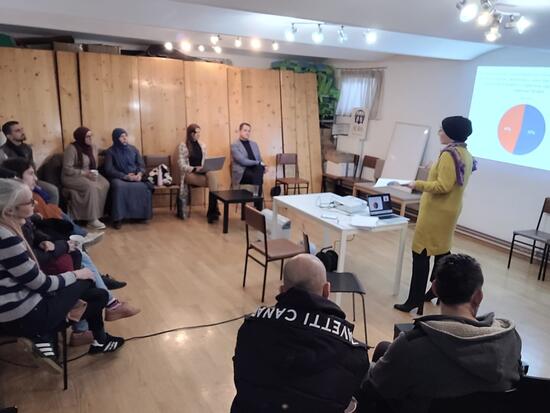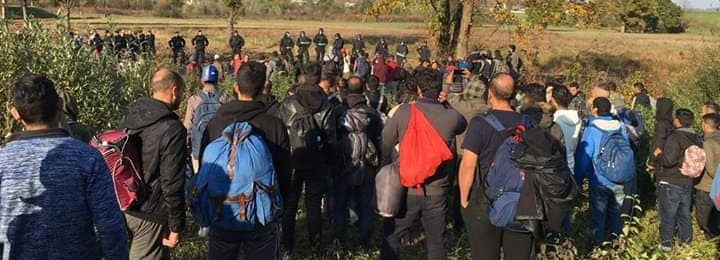Advocacy Workshop on Inclusive School Meals: Addressing Cultural and Dietary Needs

KD Gmajna led a series of women’s advocacy workshops titled Inclusive Education, Inclusive School Meals, focusing on the importance of inclusive school lunches. The workshops engaged and trained migrant women to speak up and organize to ensure that school meals equally consider the dietary requirements of children from diverse cultural backgrounds.
On December 3, 2024, Ela Porić and Zmago Godina were invited to present their experiences in the field. The talks were followed by a participatory workshop.
Ela Porić, from the Muslim Community in Slovenia, shared findings from a 2024 survey of 1,840 parents about their experiences securing pork-free meals for their children in schools. The study revealed significant challenges, including limited availability of pork-free options, a lack of a systematic approach to providing culturally appropriate meals, and inconsistent implementation across schools. Some schools were more accommodating than others. The discussion emphasized the urgent need for clear policies and standardized guidelines to ensure that Muslim children and others with dietary restrictions have access to appropriate meals without exclusion or discrimination.
Zmago Godina, President of the Christian Adventist Church in Slovenia, shared the Adventist community’s perspective on school meals, emphasizing their commitment to a plant-based diet for ethical and health reasons. He highlighted the ongoing challenges Adventist families face in ensuring their children have access to appropriate vegetarian or vegan meals in schools. The lack of structured meal provisions often leads to exclusion and health concerns for children adhering to plant-based diets.
During the concluding workshop on developing solutions for inclusive school meals, parents shared firsthand experiences of the challenges they face in securing appropriate meals for their children. A key issue discussed was the lack of standardized policies, which leads to inconsistent meal provisions across schools. While some schools are more accommodating, many parents are forced to negotiate meal options individually, creating stress and uncertainty. The discussion underscored the need for systemic changes at the national level to ensure fair access to inclusive school meals that respect cultural, religious, and ethical dietary needs.
Following the discussion, participants agreed on key actions: developing a public initiative and petition for systemic policy changes, engaging with policymakers and school administrators to raise awareness, and pushing for updated municipal and national guidelines that include cultural, religious, and ethical dietary considerations in school meals.
The workshops are part of the EMV-LII project and are organised in cooperation with ADRA Slovenia, the Association for Intercultural Dialogue, and the BODE+ project.
Photo: Ela Porić presenting the 2024 study on securing pork-free meals in schools (KDG)

